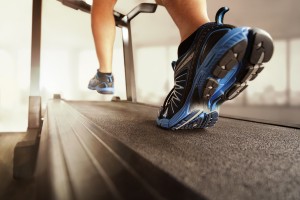
Written by: Dr. Elisha Cook ND
Dementia and Alzheimer’s disease can be impactful for those who suffer from it, and their care providers. Dementia is classified as a decline in cognitive functions such as memory and complex thinking. As we age, our risk can increase, but there are many activities and lifestyle factors that can help decrease the likelihood of being personally affected by this condition. We hope that this article will bring to light these factors and help you and your loved ones reduce your risk.
Exercise
Exercise can be beneficial for many pathways and systems in our body. Walking daily can help to reduce the risk of dementia by 25%. Specifically, achieving a minimum of 3800 steps per day helps to reduce this risk, with risk reduction increasing with the more steps that were achieved (the maximum benefit was received at 9800 steps).
Diet High in Fruits and Vegetables
According to the research, consuming a diet high in “flavonoids” helps to reduce the risk of dementia. Fruits and vegetables with yellow or orange colour tended to have the greatest impact on reducing risk, but in general, consuming a rainbow of colour when it comes to fruits and vegetables aids in overall health. With fruits specifically, aiming to consume “lower sugar” fruits such as apples, pears, blackberries, blueberries and raspberries may aid more than just your mental health as well.
Challenge your Mind
Regularly engaging in activities that challenge the mind can reduce dementia risk by as much as 11%. By engaging in literacy tasks, higher learning, logical reasoning tasks, critical thinking tasks, and social engagement, it increases neurons and improves brain activity. Activities that stimulate the brain in such a way include:
- puzzles
- reading
- writing
- playing cards
- computer tasks
- taking courses
- scrabble
- word searches
- crosswords
- playing an instrument
Incorporating more of the above tasks may not eliminate the onset of one of these conditions, but risk reduction is always a step in the right direction.
Have you benefited from reading this blog? Know someone that would benefit as well? Share, Like, Comment, or Tweet this article, and let me know what you think.
Some of the information provided above may not be appropriate for everyone, please consult with your doctor before trying any of the above. If you are interested in trying any of our services, working with any of our amazing practitioners, or are simply wanting a different approach to your health care needs, contact the Plattsville Natural Health Clinic by calling 226-232-7665 and book your appointment today!
References:
hsph.harvard.edu/news/hsph-in-the-news/lifestyle-changes-can-help-prevent-dementia/
health.harvard.edu/mind-and-mood/taking-more-steps-a-day-might-reduce-dementia-risk
theguardian.com/society/2023/jul/14/challenging-brain-older-age-may-reduce-dementia-risk-study#:~:text=The%20results%20reveal%20that%20for,over%20a%2010-years%20period


